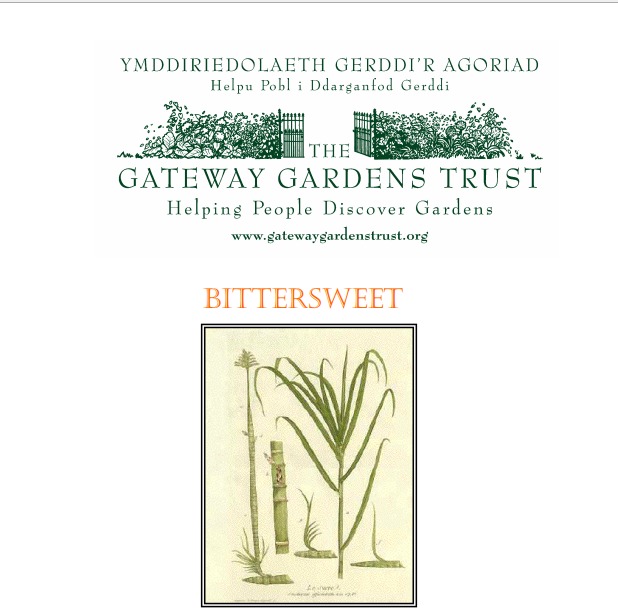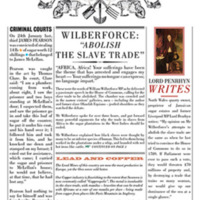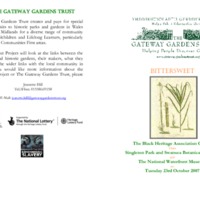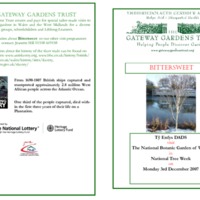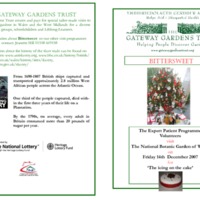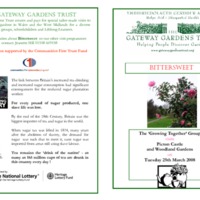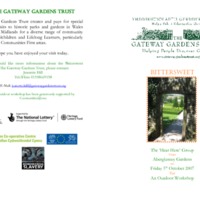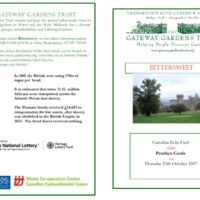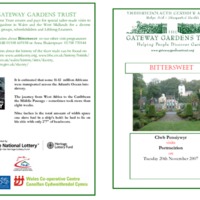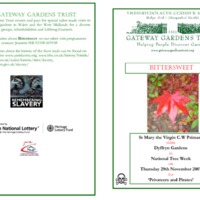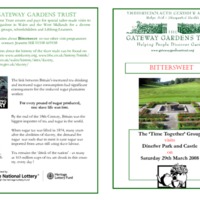The Bittersweet programme by the Gateway Gardens Trust involved 80 free guided garden visits over two years, around more than 30 gardens in Wales with a range of community groups, schoolchildren and lifelong learners. The themes of the visits and a mobile exhibition were the links between the slave trade and historic gardens, their makers, what they planted, Welsh abolitionists and the wider links with local communities in Wales. Historic gardens provided the starting point, looking at how everyday vegetables and fruits - beans, potatoes, tomatoes etc. - first reached the UK from the Americas. The project also looked at the history of afternoon tea, and the links between sugar, cotton and tea and slavery. The groups reflected on how many industries, grand houses and gardens were built from wealth linked to slavery, such as Cyfarthfa Ironworks in Merthyr and the expansion of the slate industry at Penrhyn Quarry. Early 18th century-style newspapers were produced, aimed at schoolchildren and adults.
Gardens involved included Cardiff’s Bute Park, Swansea’s Singleton Park, the National Botanic Garden in Carmarthen, Gwydir Castle in Llanrwst, Dyffryn Gardens, Portmeirion, Penrhyn Castle, Picton Castle, Dinefwr Park and Castle and Aberglasney Gardens.
